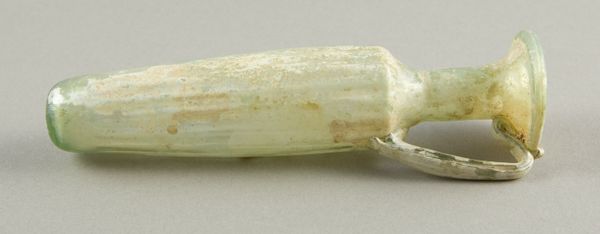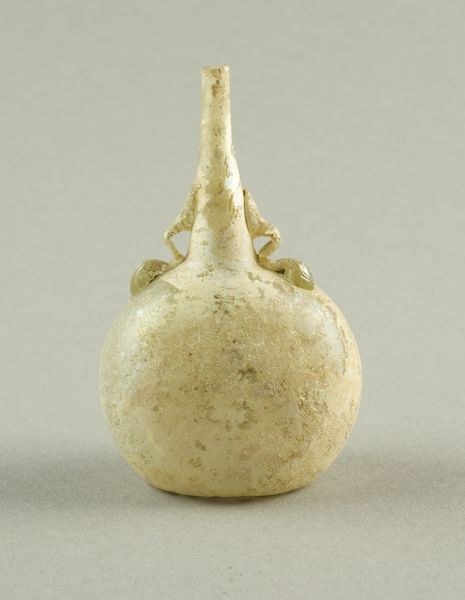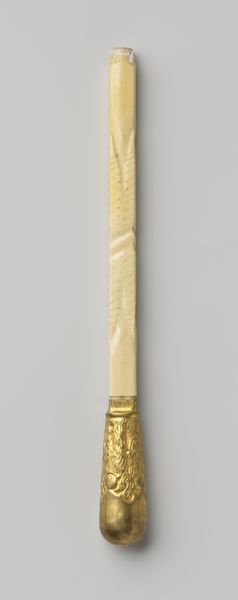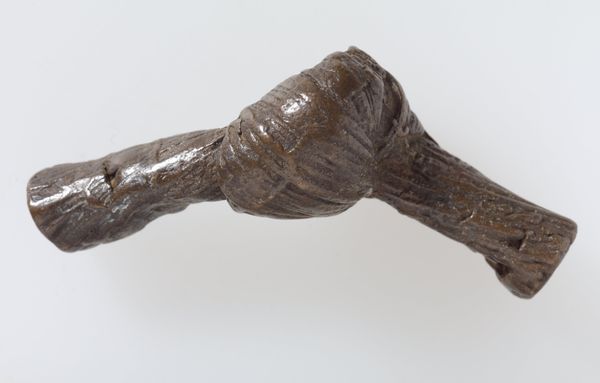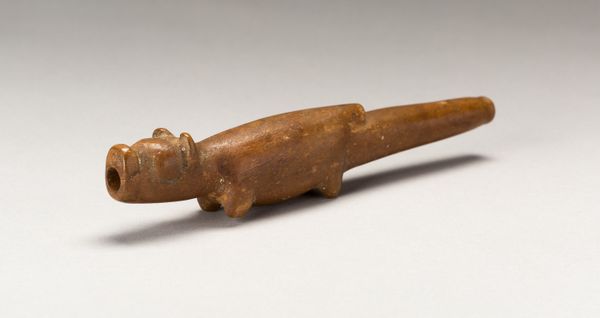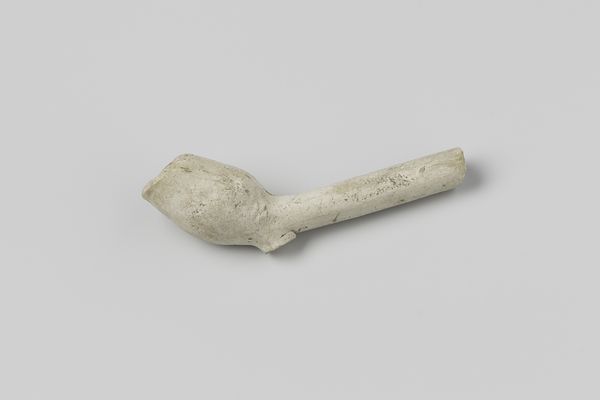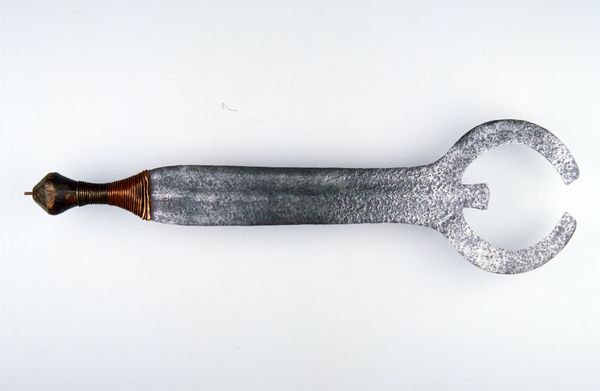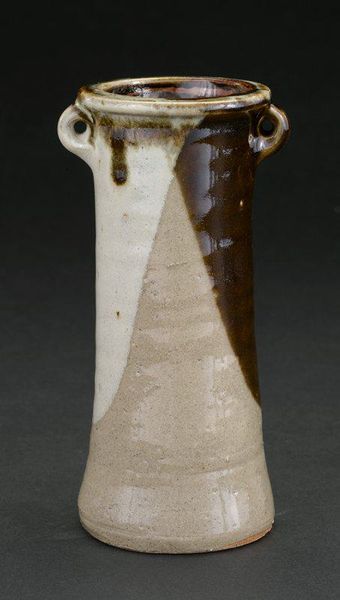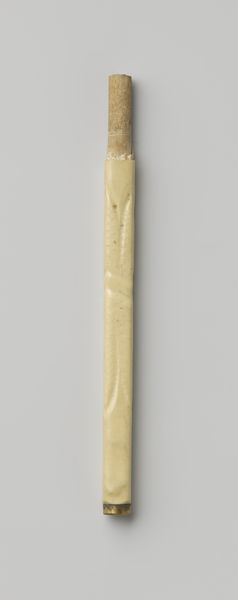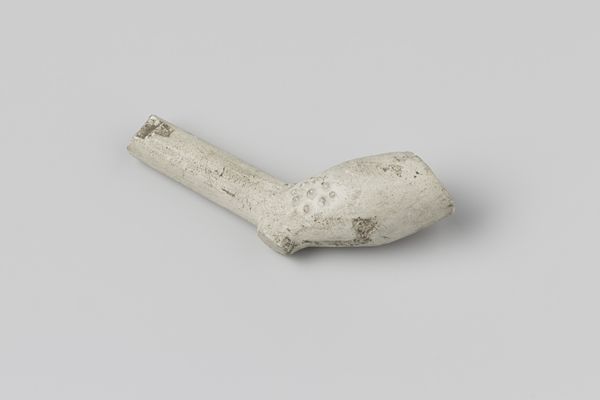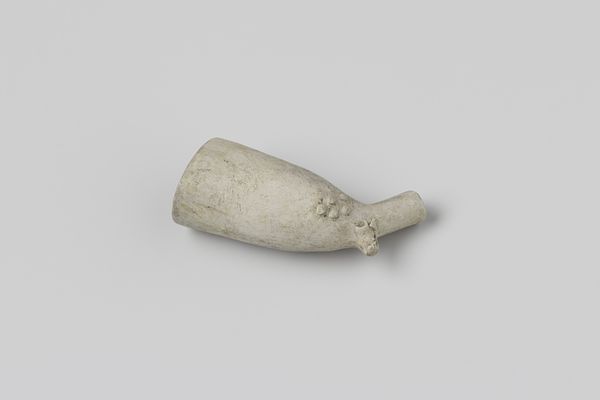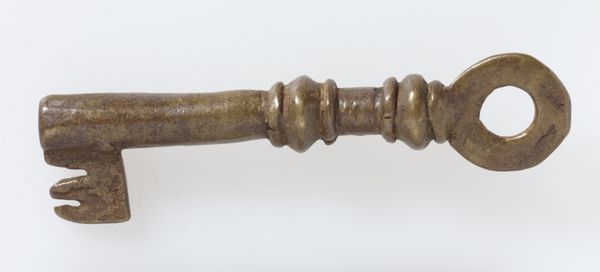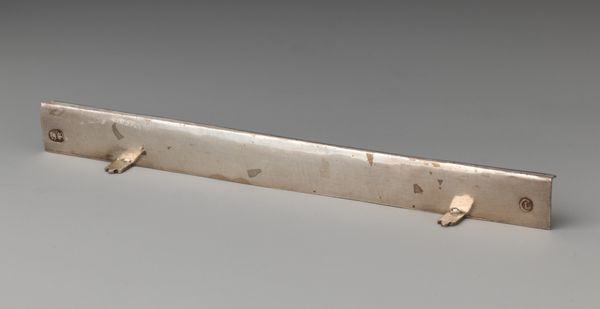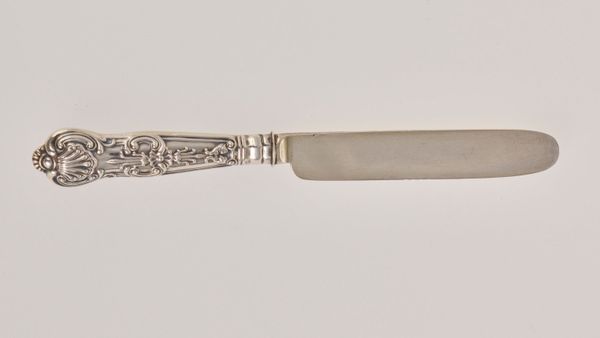
glass
#
clear colour scheme
#
3d sculpting
#
3d printed part
#
rounded shape
#
jewelry design
#
sculptural image
#
curved arc
#
glass
#
vessel
#
3d shape
#
curved shape
#
curved surface
Dimensions: H. 9.8 cm (3 7/8 in.); diam. 2.5 cm (1 in.)
Copyright: Public Domain
Editor: We’re looking at an object called “Flask,” dating from around the 8th or 9th century. It's currently held at the Art Institute of Chicago. The medium is glass, and its small size is striking. It's such an ordinary thing presented as something of value. What can you tell me about how society might have viewed an object like this? Curator: Considering the social history, such a seemingly simple glass flask from the 8th or 9th century is less about the individual maker, and more about the culture surrounding glass production. Did this culture value opaqueness versus translucence, for example, or the ability to transport the vessel? It may have held precious oils or perfumes and reflects the societal value placed on these commodities. Its very existence suggests a certain level of specialized labor and trade networks. Was glasswork supported by wealthy patrons or temples? Editor: So, it wasn't just about having a container? Curator: Exactly. Think about the status associated with possessing such an object. Its presence in a specific archaeological context could also tell us about funerary rituals or domestic practices, shedding light on daily life and beliefs. Is there evidence of mass production or unique craftsmanship? And how do museums today affect the flask’s ongoing relevance as a valued piece of art? Editor: It's interesting how the simple act of preserving it changes its role. The history attached to a basic flask is now far richer than its original use. Curator: Precisely. It becomes a vessel for our understanding of the past. Editor: I'll definitely think differently about these everyday ancient objects. Curator: And hopefully, consider the wider narratives that objects carry across time, through societies, and within institutions like this one.
Comments
No comments
Be the first to comment and join the conversation on the ultimate creative platform.
